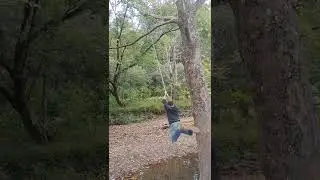Using a pipe at the command line with bash, tar, gzip, and more! (CC251)
We've talked a lot about using a pipe in R, but did you know you can also use pipes at the command line when bash programming? In this episode Pat will show how you can pipe output from the tar command to other programs like grep and gzip to create a single compressed file. The overall goal of this project is to highlight reproducible research practices using a number of tools. The specific output from this project will be a map-based visual that shows the level of drought across the globe.
You can find my blog post for this episode at https://www.riffomonas.org/code_club/....
#bash #pipe #tar #gzip #Rstats #R
Support Riffomonas by becoming a Patreon member!
/ riffomonas
Want more practice on the concepts covered in Code Club? You can sign up for my weekly newsletter at https://shop.riffomonas.org/youtube to get practice problems, tips, and insights.
If you're interested in taking an upcoming 3 day R workshop be sure to check out our schedule at https://riffomonas.org/workshops/
You can also find complete tutorials for learning R with the tidyverse using...
Microbial ecology data: https://www.riffomonas.org/minimalR/
General data: https://www.riffomonas.org/generalR/
0:00 Introduction
2:45 Reviewing use of the tar command
6:38 Writing output from tar to stdout
9:20 Compressing and decompressing files with gzip & gunzip
11:55 Piping output from tar to gzip
15:31 Applying pipeline to ghcnd archive
17:49 Incorporating grep into pipeline
20:05 Adding rule to Snakefile
21:40 Reading new file into R































